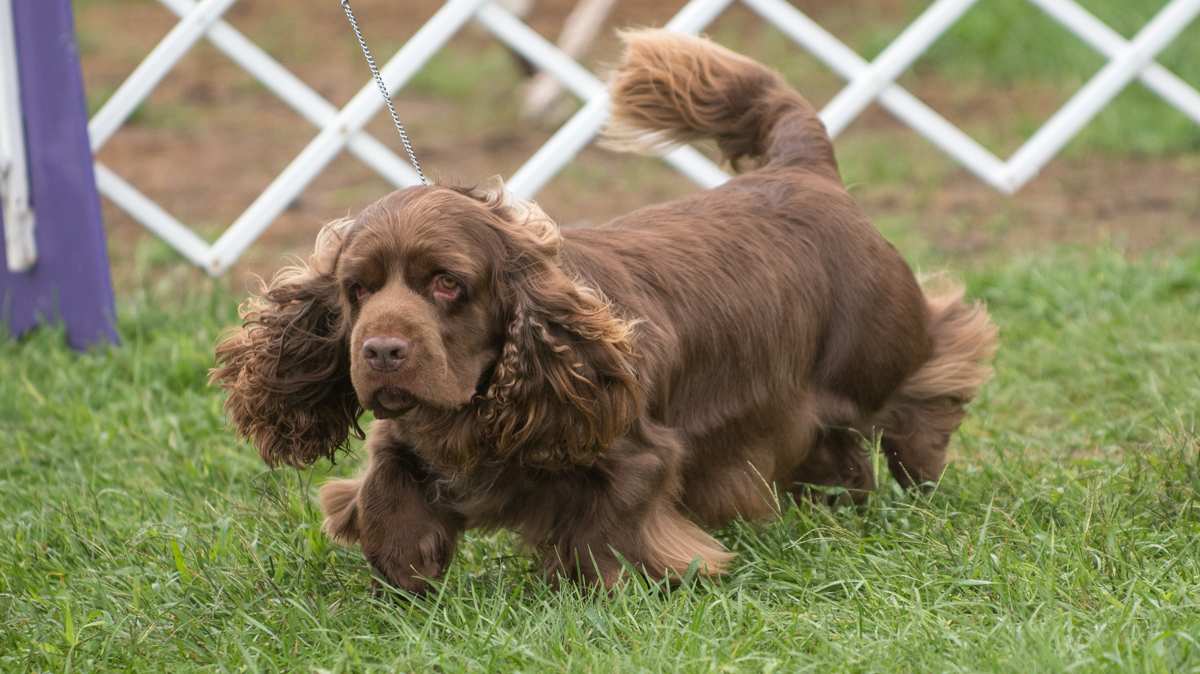A member of the Sporting group, the Sussex Spaniel was developed in late 19th-century England to flush birds for hunters. As such, these dogs are good hunting companions--but they make great family pets too, and are best with owners who can make sure they get some daily exercise.
A few Sussex Spaniel dog facts: they're "low and long" in build, averaging only 14 inches in height but 40 pounds in weight; they have medium-length, slightly wavy, double-layered coats with longer feathering on the ears, chest, legs, and tail; and unlike other spaniel breeds, they tend to bark a lot.
Some advantages and drawbacks to owning this gentle but sporty breed:
Intelligent
Affectionate and loving
Low to moderate exercise requirements
Good overall health
Adapts well to apartment life
Great with kids, especially if raised with them
Moderate grooming needs
Adaptable to weather extremes
Good match for first-time owners
Can be stubborn and headstrong
Barks frequently, especially if left alone
High tendency for obesity; diet monitoring and consistent exercise are musts
Can be difficult to train
Prone to separation anxiety
Often confrontational with unknown dogs
Early training and socialization is highly recommended
Will chase and injure birds
Rare, and thus expensive to purchase
Purebred
11 - 14 yrs.
13 - 15 in.
35 - 45 lbs
Overall
Easy to GroomEnergy LevelExercise NeedsShedding Amount
Barks / HowlsGuard DogWatch Dog
Intelligence
